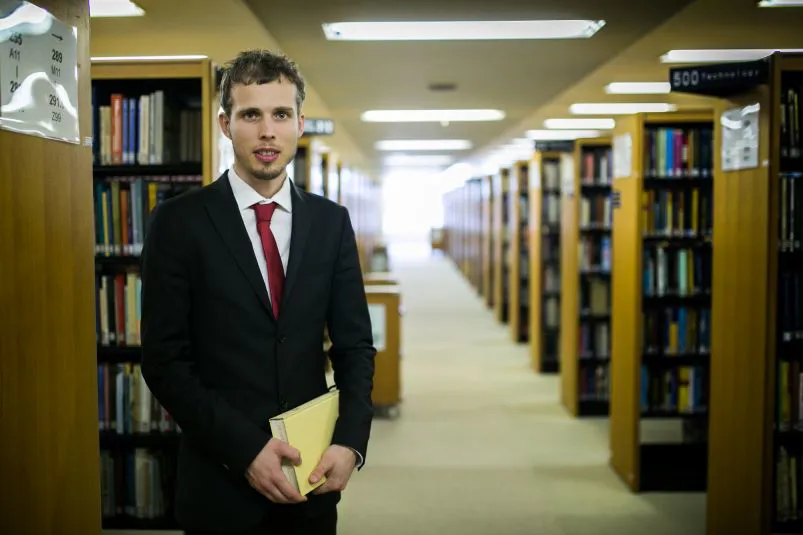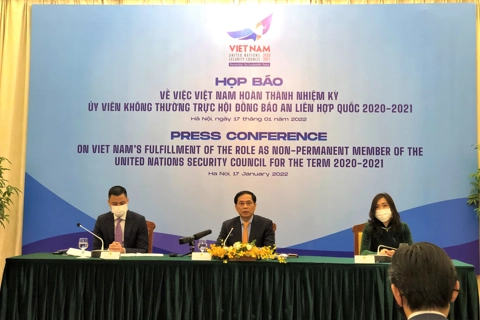Vietnam turns unprecedented challenge into an opportunity at UNSC
Vietnam engaged in multilateral diplomacy to considerable success. It has not been afraid to tackle difficult or contentious issues, using its rising diplomatic profile to seek constructive solutions to pressing issues.
| British expert Nicholas Chapman. |
The major challenges faced by the United Nations Security Council (UNSC) in the past two years have been overshadowed by Covid-19. Still, smaller regional issues such as peace in Libya, Sudan, and the rise in violence in Myanmar have been at the forefront of security issues. Vietnam has been proactive in trying to solve these.
Vietnam put a great deal of preparation and planning into its UNSC non-permeant membership. It set out to improve issues related to peacekeeping, war legacy, climate change, and coordination between the UN and ASEAN, issues in the East Sea (internationally known as the South China Sea), and relations with permanent and non-permanent UNSC members.
Covid erupted shortly into its tenure and unsurprisingly dominated discussions. Nevertheless, Vietnam turned this unprecedented challenge into an opportunity.
The first resolution proposed by Vietnam was proclaiming December 27 a Day of Epidemic Preparedness to promote education and awareness on the response and prevention of transmissible diseases. Co-sponsored by over 100 other nations, the resolution was swiftly adopted. Moreover, Vietnam lobbied for international cooperation to secure vaccines and drugs.
International press conference on Vietnam tenure at UNSC (2020-2021). Photo: VNA
Vietnam also demonstrated its commitment to peacekeeping. Since 2014, Vietnam has sent nearly 200 soldiers on UN peacekeeping missions. The country has maintained a military field hospital in South Sudan, where Vietnamese military doctors used their updated knowledge of Covid-19 to treat infected patients.
Major General Hoang Kim Phong indicated the pandemic had posed a considerable challenge, but that Vietnam remains committed to fulfilling its obligations to the UN under any circumstance.
Vietnam furthered its engagement in the region, as well as illustrating its leadership, when Dang Dinh Quy, head of Vietnam’s Mission to the UN, chaired a visit to South Sudan to monitor the implementation of the council’s resolutions and the 2018 Peace Agreement.
Vietnam remained devoted to reforming the Security Council and increasing both permanent and non-permanent members. This, as Quy has rightly argued, would generate a more equitable representation for underrepresented and developing countries. This won Vietnam many favors within the developing world and shows its leadership credentials.
Vietnam is one of the most at-risk countries when it comes to climate change, and it sought to foster better engagement on the issue. Ahead of the Glasgow COP summit, it organized an informal council discussion on sea level rises. This placed immense pressure on the UNSC to take tougher action on climate security.
The impacts of Covid-19 on multilateral diplomacy are vast. Face-to-face contact has long been seen as fundamental for trust-building, advancing relations, and developing solutions to complex problems. The pandemic has forced diplomacy to go digital, distorting the settings for informal and formal talks and placing greater obstacles for working together when it is more important than ever. Vietnam has shown a high degree of adaptability, flexibility, and ingenuity in adapting to these challenges. It has shifted meetings online efficiently and smoothly to keep disruptions to a minimum.
During its year as ASEAN Chairman, over 550 meetings took place with 20 summits and 70 ministerial meetings. A record of 80 documents gained approval. In addition, ASEAN and the EU signed a strategic partnership in December 2020, drawing one of ASEAN’s biggest investors to engage more in the region. Vietnam has also chaired a host of online meetings for the UN.
These complications have not stopped Vietnamese representatives from engaging in face-to-face diplomacy either. Prime Minister Pham Minh Chinh visited Japan in November 2021. This followed the Prime Minister leading a large delegation to COP 26. There he pledged to get to net Zero by 2050 and phase out coal between 2030 and 2040.
Covid-19 altered the focus of Vietnam’s multilateral diplomacy, but it did not squander the opportunity to showcase its diplomatic prowess.
Among the issues, Myanmar’s coup placed Vietnam in a tricky spot. Vietnam respects the ASEAN principle of non-interference. Yet this would be incompatible with Vietnam’s role as a UNSC non-permanent member. Still, Vietnam skillfully handled the delicate issue with a significant amount of care and discretion. It adopted a two-pronged approach, calling for the end to the violence that erupted and for constructive talks going forward.
At the same time, Vietnam reaffirmed its support for the people of Myanmar and its firm commitment to the sovereignty, political independence, territorial integrity, and unity of Myanmar.
Vietnam also kept UNSC members abreast of developments within ASEAN regarding the matter. Speaking further in May 2021, Vietnam called for “constructive contributions” from the international community in an online meeting on the situation. The UNSC noted its appreciation for ASEAN’s efforts in finding a peaceful solution in Myanmar. Ultimately, Vietnam demonstrated diplomatic maturity in facilitating this two-pronged approach.
Nicholas Chapman is a British expert working in Japan at Tohoku University. His research focuses on the international security of Asia-Pacific countries, including Vietnam, China and Japan.



![[Vietnam – reliable partner] Vietnam makes world less controversial in UNSC term](https://cdn-media.hanoitimes.vn/2022/01/01/VIETNAM_SECURITY_COUNCIL.jpg?w=480&h=320&q=100)









